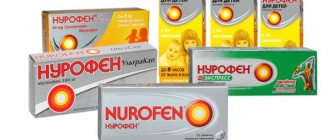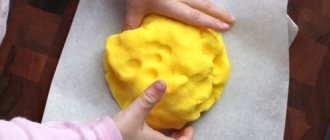The child complains of discomfort in the oral cavity, is capricious and refuses to eat... Having ruled out a sore throat and not finding the cause of poor health, parents should take the child to see a dentist. Our teeth don’t hurt, so why do we need a dentist? However, as a result of a very minor injury to the oral mucosa, stomatitis, gingivitis, and cheilitis can develop. Parents need to know how to recognize pain in their child's mouth and what measures to take.
How does it manifest?
One or more whitish aphthae (small oval-shaped wounds) suddenly appear in the mouth (on the tongue, gum, under the lip or on the inside of the cheek), causing discomfort to the baby. The main complaint is discomfort while eating and talking.
What is the reason?
Bacteria enter the microtrauma of the oral mucosa, and very soon the small damage turns into aphthae - a source of pain and discomfort. Of course, not every injury leads to stomatitis. This happens when general or local immunity is weakened (for example, during or immediately after an acute respiratory viral infection). Children's mucous membrane is very thin, easily injured, and babies constantly lick their hands or toys. As a result, painful sores easily arise in the mouth—a gateway to infection.
How to treat?
Use special antiseptic rinsing solutions (they are sold at the pharmacy) or herbal decoctions. But it is safer to contact a specialist; he will select a suitable treatment regimen. For children under one year old, doctors recommend using special wipes with xylitol as an antiseptic, and for older children - pain-relieving dental gels.
What can parents do?
Feed your baby more liquid food during illness. Eliminate everything salty and sour - otherwise the unpleasant sensations will only intensify. Pay attention to oral hygiene. During stomatitis, teeth are brushed as usual, but after recovery, do not forget to replace the toothbrush.
How does it manifest?
You notice that your baby's gums are inflamed. They are bright red, the gingival papillae are swollen and bleed even from the slightest contact with a toothbrush. The child experiences discomfort, and his mouth often smells unpleasant.
What is the reason?
The baby does not brush his teeth well, and the accumulated plaque on the teeth in the gum area provides breeding ground for bacteria. But sometimes gingivitis occurs after severe infections. Therefore, first figure out what the reason is.
How to treat?
If the problem occurs after an infection or virus, it is enough to use a local antiseptic. When the body gets a little stronger, this disease will pass. If the problem is a lack of normal oral hygiene, gingivitis will not go away so quickly. If your baby does not brush his teeth thoroughly enough, bacteria will continue to accumulate on the teeth in the gum area, causing the development of gingivitis. It can become chronic, resulting in periodontitis and premature tooth loss.
What can parents do?
Closely monitor the child's health. And don't be afraid to see your dentist! The doctor will perform professional oral hygiene and give recommendations.
How does it manifest?
Gray-yellow crusts appear on children's lips, lips crack until they bleed, and jams appear in the corners. What are the reasons? Children have poor control over their sensations and often lick and suck their lips on the street. If you add to this insufficient hygiene and mouth breathing, cheilitis will not take long to occur.
How to treat?
You need to visit not only a pediatric dentist, but also a neurologist, allergist and endocrinologist. Almost everyone licks their lips on the street, but not everyone gets cheilitis. Doctors from different fields, after conducting an examination and collecting the necessary information about the child, will be able to make an accurate diagnosis.
What can parents do?
Some babies' lips are sensitive to ultraviolet light. Therefore, jams, crusts, and cracks on the baby’s lips can appear in warm and sunny weather. For prevention, of course, everyone without exception needs to use special protective creams or hygienic lipsticks before going outside. And if the child has any allergic problems, this skill should be brought to automaticity.
The child has pain in the mouth; the child complains about his mouth.
Oral pain in a child can have a variety of causes. Before you run to the pharmacy for medications, you should know the exact diagnosis. And it is advisable to trace the cause-and-effect relationship of the appearance of pain. If you have only had one pregnancy and birth, then you may not yet know all the reasons why your baby may have a sore mouth. We will tell you more about this.
What could be the causes of oral pain in a baby?
1. Mechanical damage to the oral mucosa in a child
Sometimes pain in the oral cavity appears after mechanical damage to the mucous membrane of the cheeks, tongue and lips.
A baby can accidentally injure himself with a toy with sharp and rough edges, an overgrown nail, and when he gets older, even with a prickly toothbrush.
Rinsing your mouth with chamomile decoction will help get rid of pain in the mouth.
Get your child interested in this procedure, show him how interesting it is to gurgle liquid by putting it in his mouth. But in order for the baby to fully recover, you will have to seek help from a pediatric dentist.
2. The baby is teething
If your baby’s gums become crimson, swollen, and hard bumps appear on top, then this indicates that your baby is cutting his first teeth.
Now you will understand why the baby’s finger is constantly in her mouth. And you try to replace your finger with something useful.
For example, a special cooling ring, a saliva-absorbing toy, or just a fresh carrot are suitable for this purpose. The child will like it more. And you can be sure that it will not cause harm. The main thing is to ensure that the baby does not choke.
3. Sore throat in a child
The first signs of tonsillitis (tonsillitis) are high fever and a reddened throat. Of course, the disease is accompanied by a sore throat.
It even happens that the baby refuses food and drink altogether. Although during the period of whiteness this is simply necessary.
But with rapidly developing tonsillitis, urgent medical attention is needed. So you should call a doctor as soon as possible. The sooner you do this, the greater the chance that your child will not need to be prescribed a course of treatment with antibacterial drugs.
Aphthous stomatitis
Why does my baby's tongue hurt? The cause may be aphthous stomatitis. Indeed, with this pathology, painful ulcers form on the tongue, as well as on the inside of the lips and cheeks. They are represented by a yellowish-white center, which is surrounded by an inflamed red stripe.
Pediatricians cannot pinpoint exactly what is the cause of this disease. As a rule, pathology develops due to such provoking factors as:
- allergies (drug, microbial and food);
- disruptions in the functioning of the immune system;
- chronic pathologies of the gastrointestinal tract;
- staphylococcal infection.
The main symptoms of aphthous stomatitis are:
- burning and itching on the mucous membrane;
- temperature increase;
- child's refusal to eat;
- the formation of a cloudy film on the surface of the ulcers.
Pediatricians point out to parents that the correct therapy for a child can be prescribed only after a comprehensive examination with the participation of a dentist, allergist and gastroenterologist. But in any case, local treatment will be needed.
What should be done when diagnosing aphthous stomatitis in a child?
To alleviate the suffering of a small patient, doctors can prescribe him the drug “Vinilin”. This remedy is also called Shostakovsky's balm. Pediatricians consider this drug to be an effective antiseptic that produces a regenerating and antimicrobial effect. The product contains a substance such as polyvinox.
A strong antiseptic that has a remarkable anti-inflammatory effect is also a remedy such as Iodinol. It is mixed with water and used as a rinse.
For children older than one year, pediatricians can recommend “Cholisal” (gel). Along with the anti-inflammatory effect, this remedy also has an anesthetic effect. Apply the drug to the affected areas of the tongue, squeezing a small strip out of the tube and carefully distributing the gel on the mucous membrane.
We suggest you read: How to take Nise correctly to get rid of toothache
In addition, for aphthous stomatitis, pediatricians prescribe drugs that increase local and general immunity, as well as vitamins.
Mouth pain in children
Pain in the mouth is an unpleasant and dangerous symptom that interferes with eating, swallowing normally, and even speaking. Most oral discomfort is related to dental problems, but it doesn’t have to be. This sign can indicate many serious illnesses. And since it is through the mouth that we take in food, without which we cannot live, it is necessary to solve the existing problem as soon as possible.
Soreness in the mouth is possible at any age. The discomfort may be accompanied by other symptoms, including fever.
Diseases by symptoms
Any symptom is a signal from the body that any organ, department or entire system is damaged. To find out why mouth pain occurs in children, you need to rule out certain diseases. Make sure that your child undergoes timely diagnosis, check with doctors about the cause of the pain in the mouth and how to quickly and effectively improve the condition.
List of ailments that may cause mouth pain in children:
- Receiving mechanical damage to the oral cavity;
- Development of tonsillitis;
- The occurrence of stomatitis;
- Dental caries;
- Periodontitis;
- Gengivit;
- Herpes;
- Pulpitis;
- Cheilitis;
- Thrush or other fungal disease;
- Pathologies of the dentition;
- Aphthae;
- Allergy.
Problems in a child’s oral cavity are easily identifiable. The baby will refuse to eat or complain of discomfort while eating. This symptom may be accompanied by cough, fever and other symptoms.
Diseases that cause lesions of the tongue
Stomatitis is one of the main causes of mucosal irritation. Aphthous occurs in the presence of an adenovirus infection, weakened immunity, or harmful staphylococcal bacteria. Aching soft pimples, white and red spots appear on the surface of the tongue. Later, whitish-yellowish ulcers form in their place, creating, when merging with each other, a focus of inflammation with swollen surrounding tissues.
Enterovirus is transmitted through the air through communication or coughing, when using household items, or while eating. Typically, this type of stomatitis affects young children under three years of age. Plaque and spots on the mucous membrane are yellowish. The child becomes lethargic, his appetite decreases and disappears, and his body temperature rises.
Glossitis is an inflammation of the tongue mucosa that occurs due to allergens, bacteria and dirt entering the child’s mouth. If the disease is severe, the temperature often rises, the tongue is affected by tubercles and ulcers, becomes coated, and swells. A sick child’s breath begins to smell, sleep and wakefulness patterns are disrupted, and drowsiness and anxiety appear.
Herpetic stomatitis is transmitted through contact with people or through everyday life, from mother to fetus, etc. The tongue turns red, increases in size, general intoxication of the body occurs, enlarged lymph nodes are felt, headaches, eating is difficult due to painful sensations, lesions of the tongue and nausea.
Vitamin deficiency - a lack of vitamins in the blood, seasonal weakening of the child's body and other factors can cause oral thrush in young children. First, redness and swelling of the throat and tongue appear, the inside of the cheeks and palate become swollen. Then a cheesy yellowish or gray coating spreads. A fungus often appears in the corners of the mouth, the tip of the tongue or a certain part of it hurts, and the body temperature rises.
Allergic rashes on the mucous membrane occur in children when taking potent medications or food products containing pathogens. The disease has several forms, one of which is called geographic tongue.
The severity of the disease can be mild, moderate and severe. There is dry mouth, hyperemia, swelling, painful sensations in the form of a burning sensation, bubbles with clear liquid when ruptured lead to ulcers, and general weakness of the body occurs.
Treatment and specialists
Only a qualified specialist should treat mouth pain in children. Only a doctor can tell you how to treat mouth pain in a child, how to get rid of complications from mouth pain and prevent its occurrence.
The following specialists will be able to decide what to do if a child has pain in the mouth:
Depending on what factor caused the pain in the oral cavity, the doctor will select an effective treatment program. If you have problems with your teeth, visiting the dentist especially should not be postponed, because at the initial stage you can save the tooth, but later you may face serious complications. For other health problems, treatment is usually complex.
Arm yourself with knowledge and read a useful informative article about the disease pain in the mouth in children. After all, being parents means studying everything that will help maintain a degree of health in the family on the island.
What to do if your child has a sore mouth and you don’t know what it is.
If suddenly a child begins to complain and whine that something in his mouth hurts, he tries to get his hands into the oral cavity. That's most likely. there are no serious reasons for this. Disregarding cases associated with teething, I think you can determine this yourself, let’s try to figure out what else can cause pain. The first thing to do is check your child’s throat for redness. If he has no appetite and feels quite normal, then go to the dentist. Do not be surprised by such advice, even if his teeth do not hurt, the problem may be caused by the oral mucosa. If the oral mucosa is damaged, this can lead to gingivitis, cheilitis or provoke stomatitis. Your task is to recognize these diseases by their symptoms.
Whitish sores appear in the mouth, which can be very disturbing for the baby. Most often, exacerbation occurs when eating food or during conversations, conversations, the child immediately begins to complain that his mouth hurts.
Why does it happen?
For some reason, an injury appeared in the mucous membrane and pathogenic bacteria immediately rushed there, irritating the mucous membrane and turning the oral cavity into a surface “eaten away” by white sores. It is clear that not every injury will immediately lead to stomatitis; the ability of the baby’s immune system to resist pathogenic bacteria is of great importance here. Naturally, if your baby has just had an acute respiratory infection and scratched his gums by putting a toy in his mouth, then the likelihood of contracting stomatitis is much higher than for a child who has not been sick. Therefore, watch what goes into your child's mouth, especially when teething or the child is sick.
Treatment.
They use special antiseptic solutions or herbal solutions, which should be rinsed in the baby’s mouth or injected into the baby’s mouth with a rubber bulb. If the baby is not yet a year old, then the baby is prescribed the use of special. wipes with xylitol, for those who are older - dental gels that relieve pain. By the way, after recovery, be sure to change your toothbrush.
Gingivitis is accompanied by inflammation of the gums; sometimes parents confuse this with teething if the child’s teeth have not yet come out. The gums bleed, causing a strong, extremely unpleasant odor from the mouth.
Causes of occurrence?
Perhaps this was due to insufficiently thorough brushing of the teeth; as a result, not all food particles were removed by the toothbrush, and mixed with plaque (in older children), pathogenic bacteria began to accumulate in the gum area, which subsequently rot. The scary sound of this formulation should encourage you to correctly explain to your child: how and why to brush his teeth. It is especially worth noting that quite often this disease can be accompanied or occur against the background of a severe infection.
Treatment
. Finding out the causes of the disease is a primary task. For viral and infectious lesions, the doctor will prescribe a local antiseptic (Miramistin is often recommended). Once the body gets stronger, the disease will be easier to overcome. If your hygiene is poor, the dentist will prescribe the correct treatment; simply brushing your teeth correctly will not get by. Advanced gingivitis can develop into periodontitis. Your task is to watch how your baby brushes his teeth, showing by your own example how to do it correctly.
Children's lips are affected by yellow-gray crusts; in addition, the lips may become cracked and sores will form in the corners.
Why does it appear?
Babies do not control themselves; they can often lick their lips, pressing and sucking one of them. Plus, breathing through the nose is difficult; they breathe through their mouth. And, God forbid, they will run dirty hands over your lips. The child is guaranteed to have cheilitis. You should teach your baby's mother to use a brush and show him how to do it from the moment the baby's first teeth emerge.
Treatment.
Since the disease is rare, it is necessary to visit not only the dentist, but also an allergist and even check the endocrine system. Only general observations and analyzes can indicate the cause of the disease. After all, you must admit that lip licking is common in many children, but not everyone develops this disease.
How can I help you.
There are children whose lip skin is especially susceptible to UV rays. Such manifestations occur more often in sunny weather and heat. For prevention purposes, it is better to use hygienic lipstick or baby protective creams.
And here is what the famous doctor Komarovsky thinks about this.
Show your kids this educational cartoon:
Stomatitis
How does it manifest?
One or more whitish aphthae (small oval-shaped wounds) suddenly appear in the mouth (on the tongue, gum, under the lip or on the inside of the cheek), causing discomfort to the baby. The main complaint is discomfort while eating and talking.
What is the reason?
Bacteria enter the microtrauma of the oral mucosa, and very soon the small damage turns into aphthae - a source of pain and discomfort. Of course, not every injury leads to stomatitis. This happens when general or local immunity is weakened (for example, during or immediately after an acute respiratory viral infection). Children's mucous membrane is very thin, easily injured, and babies constantly lick their hands or toys. As a result, painful sores easily arise in the mouth—a gateway to infection.
How to treat?
Use special antiseptic rinsing solutions (they are sold at the pharmacy) or herbal decoctions. But it is safer to contact a specialist; he will select a suitable treatment regimen. For children under one year old, doctors recommend using special wipes with xylitol as an antiseptic, and for older children - pain-relieving dental gels.
What can parents do?
Feed your baby more liquid food during illness. Eliminate everything salty and sour - otherwise the unpleasant sensations will only intensify. Pay attention to oral hygiene. During stomatitis, teeth are brushed as usual, but after recovery, do not forget to replace the toothbrush.








